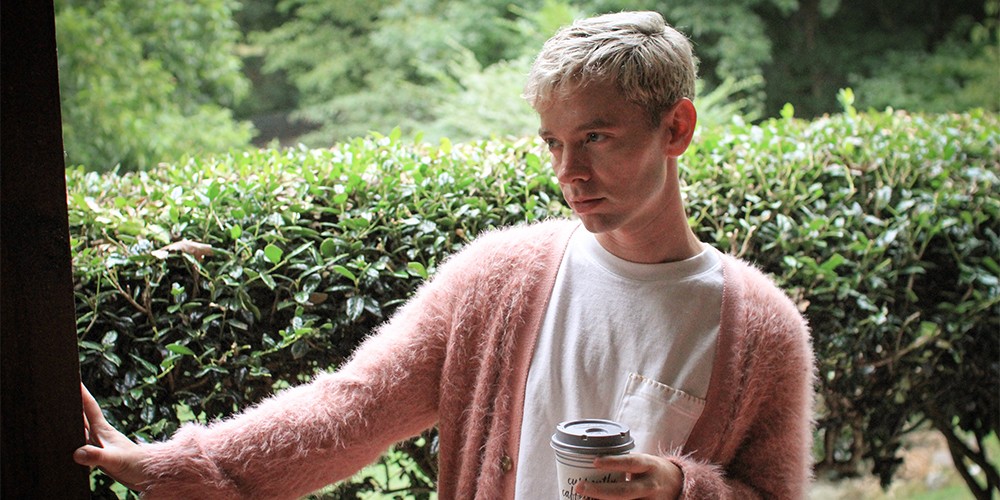Alumni Spotlight: Ryan Craver ’20
Ryan Craver '20 (Film) is a writer, director, and producer who draws from the deep well of his Southern upbringing to inspire new notions of the American family. His feature, television, and short film projects have received support from Tribeca Film Institute, SFFILM, the Alfred P. Sloan Foundation, and the David Ross Fetzer Foundation for Emerging Artists. His latest film, Sound to Sea, recently won audience awards for best narrative short at both the New Orleans and Atlanta film festivals and will continue its festival run throughout the year. In 2021, Ryan was commissioned to develop his first short film, Truck Slut (special mention for ‘Best Emerging Filmmaker’ at the 2019 Palm Springs International Shortfest), as a TV series—which he hopes to jump back into after the strikes. Earlier this year, he was also awarded a prestigious MacDowell Fellowship that will allow him to spend the month of October creating new work. Ryan is passionate about championing new voices that challenge our perceptions of the South and its communities. He has spoken on panels and written for the New Orleans Film Society, and he joined the organization as a narrative features programmer for its 2023 festival, which will be held in early November. Before earning his MFA in film at Columbia, Ryan completed an MA in English at North Carolina State University and a BA at UNC-Chapel Hill, where he graduated with highest honors for his thesis on queer school stories.
Was there a specific faculty member or peer who especially inspired you while at the School of the Arts? If so, who and how?
I think I owe a sizable amount of my success, drive, focus, and craft to Tom Kalin. When I was a teenager, I discovered his films around the same time that I began to dream of making my own, which seemed so impossible and opaque at the time. Googling 'how to become a filmmaker,' I found that Tom was on the Columbia faculty, and because of him, about a decade later, it was the only film school I applied to. Meeting him was one of those rare fullcircle moments--I truly thought I'd made it. Tom was, of course, a fantastic teacher and an even better thesis advisor. I very much still consider him a role model. The great thing about the program, though, is the diverse and expansive cohort, and to be honest, I think I learned as much about filmmaking from my classmate Nathalie Álvarez Mesén as I did from any professor. She entered the program knowing exactly who she was, what she wanted, and the kind of work she was going to make. I wrote and produced her short film Molt after our first year, and to see her work especially in casting and on set with actors was such an education. I am not surprised in the least by her success, and I don't know anyone who worked harder in our MFA years. I would also be remiss not to call out Maureen Ryan, whose practicality toughened me up early in the program. It's easy to dream, but you can dream all day and not have a film. A film truly begins in a spreadsheet, in numbers. I quite literally open Maureen's book every time I start a new project and work through it like a checklist.
What were the most pressing social/political issues on the minds of the students when you were here?
My career at Columbia began with the incredibly divisive primaries for the 2016 election and ended with a global pandemic. There was a daily, heavy, existential dread which still hasn't quite let up. But although tensions run high when a country is divided to that degree, I think my unique position as a Southerner in New York City, in an art school with many international students, forced me to articulate clearly what kind of stories I want to tell--and why. Although my family might think differently, vote differently, or value different things than I do, I still sit at the dinner table with them. And that image has become central to my mission as an artist. I came out of those years feeling strongly about family--about forgiveness, tolerance, and empathy. I also expanded the net of my audience. I think when I began the program, I was just toying with some ideas and images I liked. Upon leaving, I feel I have a mission to heal--in my own, small way--a cultural divide.
What advice would you give to recent graduates?
Make your own opportunities. I have to remind myself of this almost every day. If you keep waiting for institutions, competitions, grants, festivals, or gatekeepers to allow you to be an artist, you are essentially playing the lottery. You will lose precious years to rejection, and you will never amass a body of work large enough to be competitive for these applications when their time comes. Your other option is: just be an artist. Work on your own terms. Make art. Make cheap art. Film something on your phone by yourself. A successful film festival run will get you maybe a thousand eyes on your storytelling. A successful TikTok will get you millions. So I think it's time we move on from outdated notions of how to achieve this seemingly impossible career. In other words: give yourself the authority to live your life. You truly don't need permission from anyone else.
